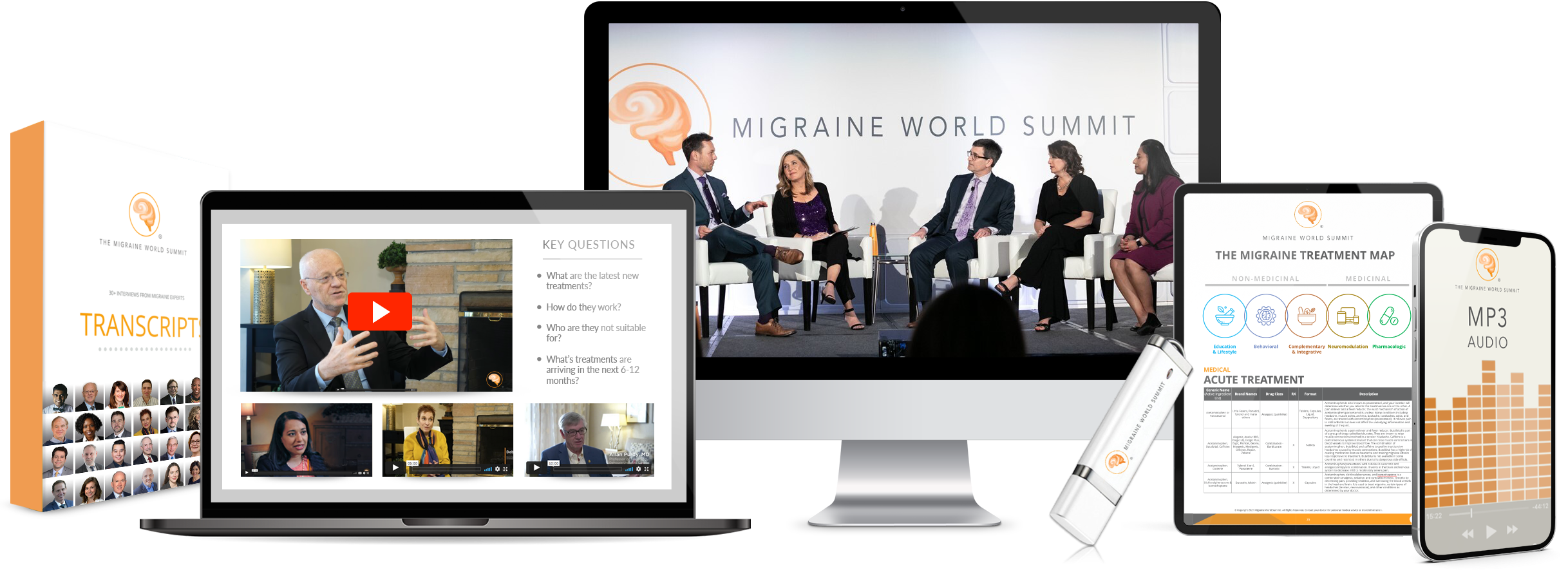Migraine and Exercise: Trigger or Preventative?
You are currently watching a preview of this interview. Unlock the full version by upgrading to an Access Pass bundle! Get FREE access to 8 expert interviews from Day 1 and Day 2 when you register today!
Key Questions
- Can significant improvement be made with nonmedical approaches to treatment?
- How necessary is exercise?
- Do those with migraine tend to exercise more or less than the general population?
- And how does this change with increasing migraine frequency?
- How effective is exercise in reducing migraine severity and frequency?
- What physiological benefits does exercise offer to how we sleep, our brain, our stress levels, and our mood?
- What is exercise?
- How would you define it?
- Is all exercise equal?
- What types are best suited or safest for those with migraine?
- How much exercise do you need to do to see results? Based on your research how much exercise is optimal for patients?
- Can exercise still be effective for someone who suffers from chronic migraine with a high frequency of attacks?
- How can exercise as a trigger be managed?
- Do you have any guidance for those who find that sexual activity triggers a migraine attack?
- Who is the ideal migraine patient that would benefit from exercise?
Interview Notes
Find more about Mattias Linde, MD, PhD and his work here:
- The association between migraine and physical exercise (The Journal of Headache and Pain)
- Cephalalgia study comparing relaxation and topiramate
- Borg scale
- Exercise as one of the triggers of the acute migraine attack (Cephalalgia).
- Reduction in perceived stress as a migraine trigger (Neurology)
- Study about amitriptyline and aerobic exercise or amitriptyline alone in the treatment of chronic migraine
- PubMed – Mattias Linde

Mattias Linde, MD, PhD
Professor and Consultant Neurologist
Norwegian University of Science and Technology, Norway
Mattias Linde received his MD in 1993 at Lund University, Sweden, and in 2002 he became a specialist in neurology at Sahlgrenska University Hospital in Gothenburg, Sweden. In 2005, he received his doctorate with a thesis on migraine and worked as an associate professor of neurology. In 2010 he was recruited as a consultant at the National Advisory Unit for Headache in Norway (Trondheim). Since 2011 he has been a professor of neurology at the Department of Neuroscience, Norwegian University of Science and Technology (NTNU), Norway’s largest university. Currently, he supervises six doctoral students at NTNU.
Mattias Linde has written over 110 scientific articles, books, and textbook chapters mainly on the epidemiology and prophylaxis of migraine. He has collaborated with researchers in 18 countries and has worked in official relations with the World Health Organization (WHO). He is project manager for the first nationwide survey of headache disorders in Southeast Asia. He is a member of the editorial board of the Journal of Headache and Pain and of the board of the European Headache Federation (EHF).

Get all the 2025 interviews, videos, audio, transcripts, and more. Why upgrade?
- Can’t attend live? Watch anytime
- Prefer reading or listening? Get transcripts and audio
- Want to dive deeper? Explore the additional footage & resources
- Need ongoing support? Reference expert advice year-round
- Lifetime access to 2025, no annual fee





